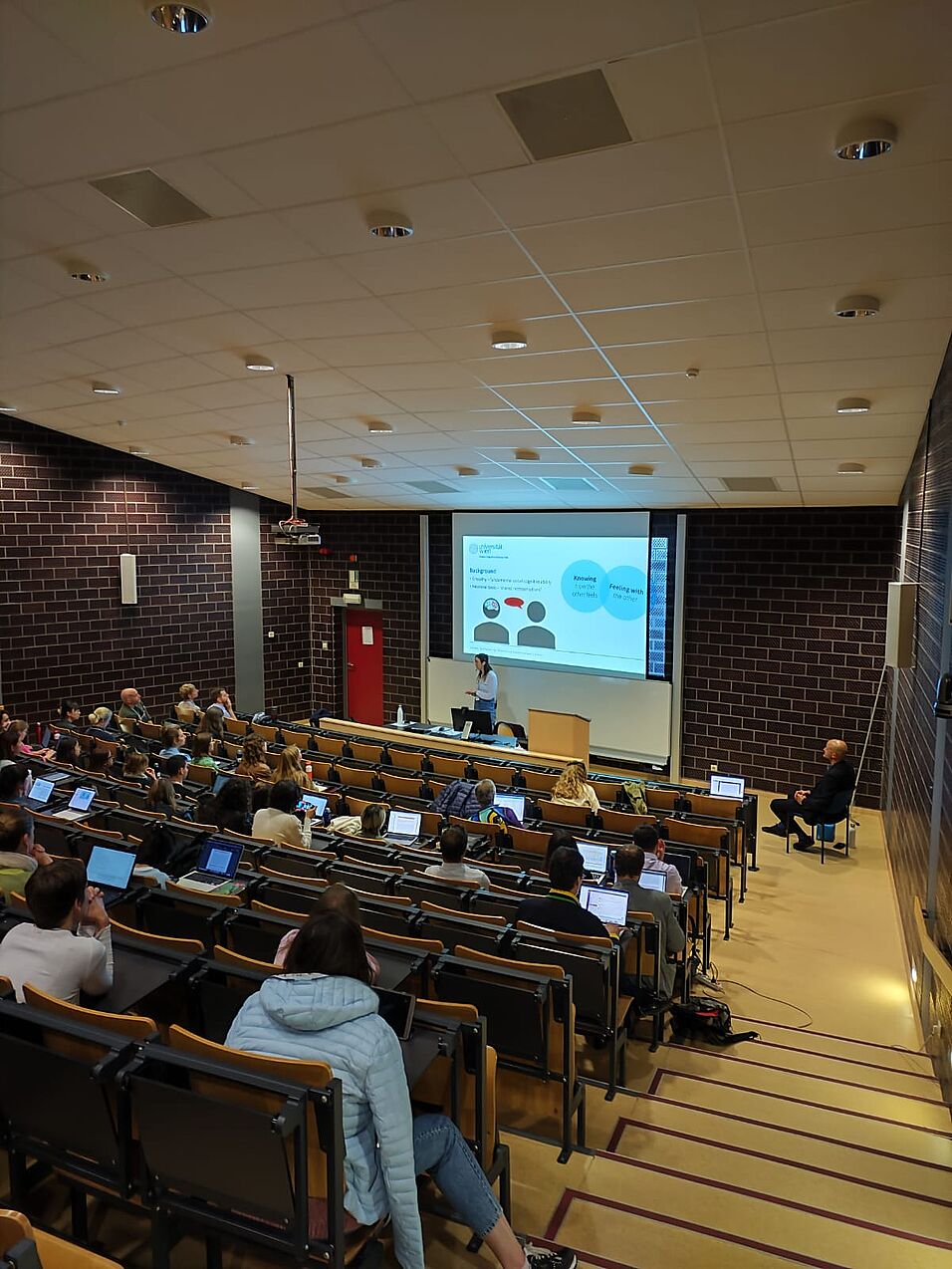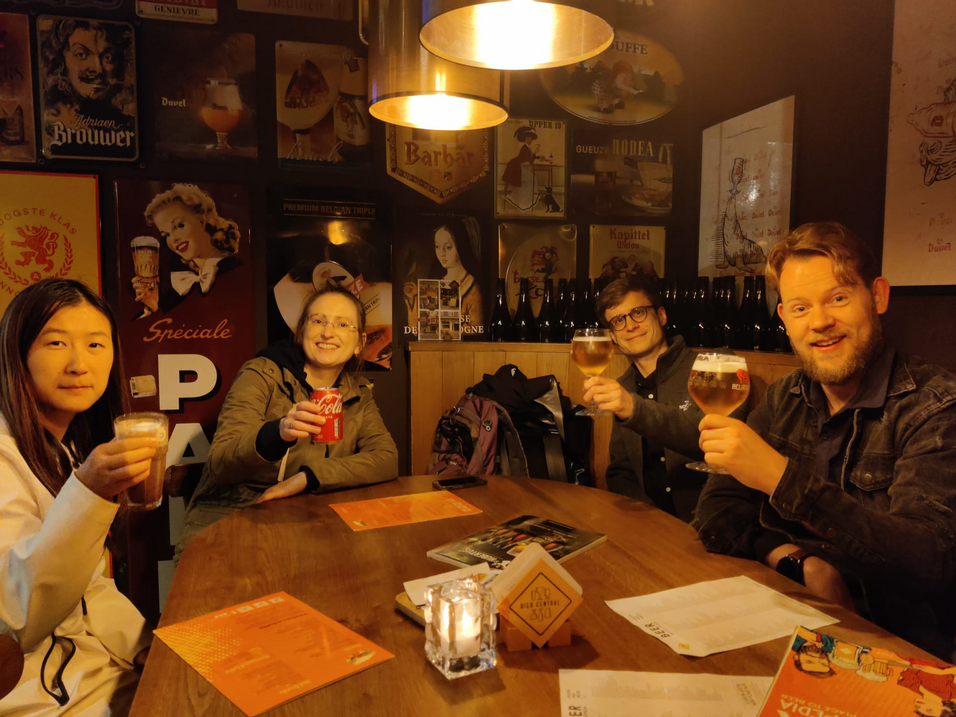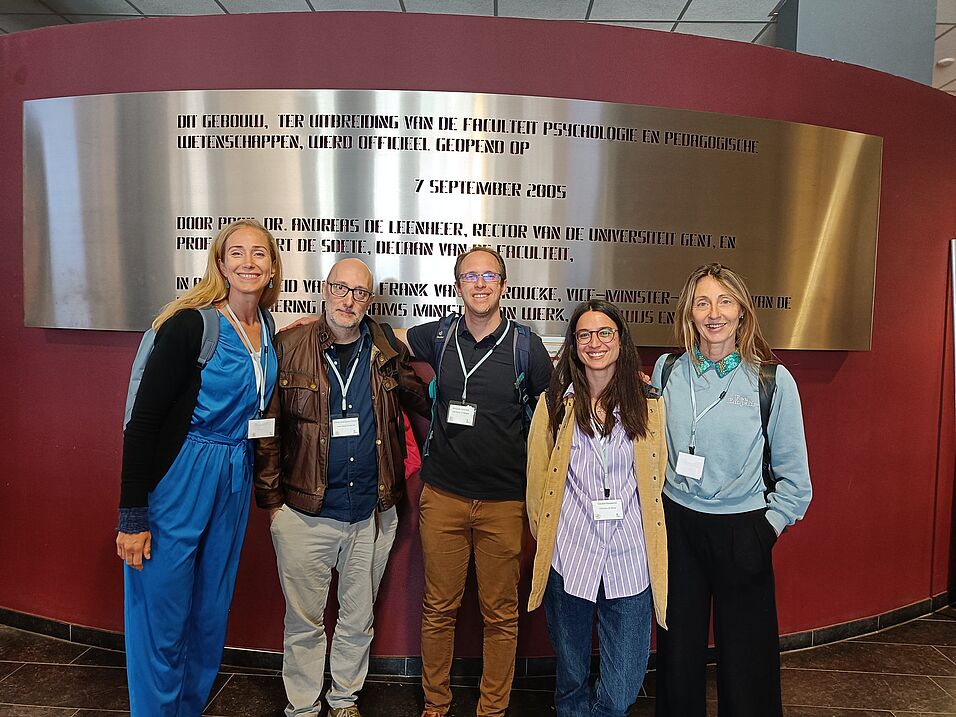Our scannies presented their work at the ESCAN 2024 Ghent, Belgium:
Dr. Pronizius gave a talk on "Self-Other Distinction Self-reported Questionnaire (SOD-SQ): A scale to measure SOD in the everyday life of healthy and clinical populations."
Dr. Claudia Massaccesi organized a symposium on "Opioidergic and dopaminergic modulation of reward processing and decision-making", in which she presented her work on how opioids and dopamine modulate motivational and hedonic neural responses to social and non-social rewards.
Max Steininger took the opportunity to represent the field of environmental neuroscience with his talk on the neural underpinnings of the analgetic effects of nature exposure.
Our Phd student Julia Braunstein successfully gave her first ever conference talk on opioidergic modulation of empathy during the symposium “The formation and modulation of empathy in the brain”.
Boryana Todorova gave a talk on the neurocomputational mechanisms of self-benefitting and pro-environmental effort.
Bianca Schuster presented a talk on how movement similarity modulates neural activity in the action-observation and mentalising networks.
Achiel Fenneman presented a talk titled "Memory Search as a bridge between episodic memory and semantic knowledge". In this talk, he reported exciting new pilot data to support the idea that we can extract abstract relationships as a by-product of episodic memory search. That is, by recalling past events, we can 'bootstrap' our ability to learn the statistical regularities that govern our everyday life. Conversely, this abstract knowledge can then be used to enhance our future ability to retrieve past episodic memories too.




